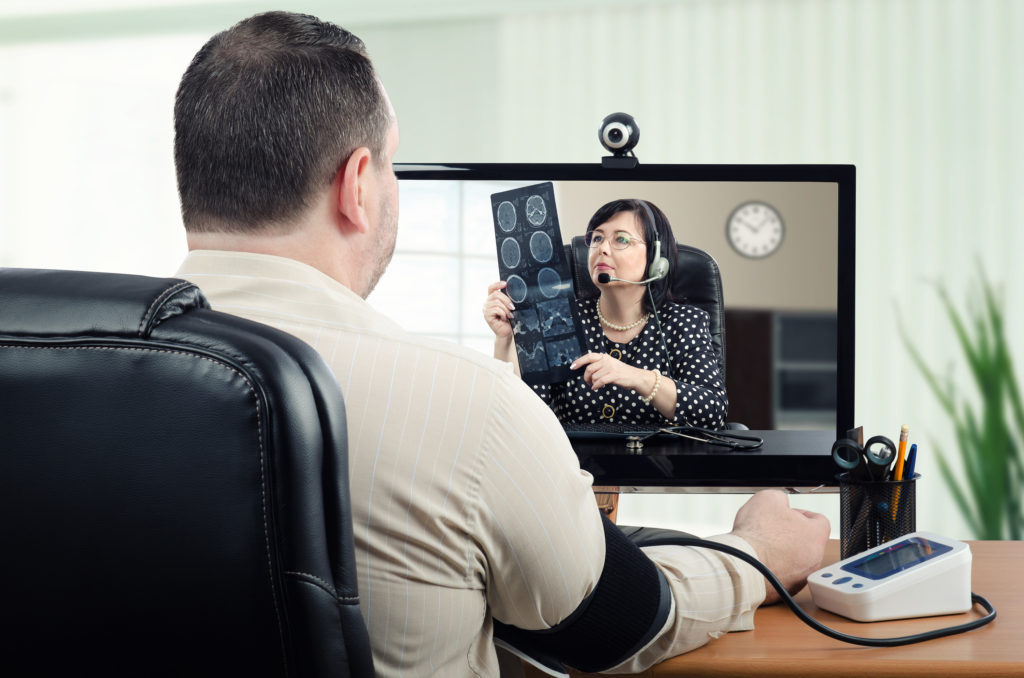![]()
First Australia, the good news: we’re among the healthiest and longest living people on the planet. Now the bad news: Somehow we also manage to be among the sickest people in the developed world and spend an average of 11 years in ill health. It’s costing the nation billions and we can’t continue to cover that ever growing, and mostly avoidable, medical bill. Luckily, we’ve got a plan. Our Future of Health report argues we should move from treating illness to preventing much of it from occurring in the first place, through emerging technologies focused on health management. In other words, take care of our health now to ensure we don’t get so sick later.
Licence to ill
Around the world healthy choices are losing out to increasingly busy lives, and the cost keeps on rising. Managing mental health related illness costs Australia around $60 billion a year. Our obesity epidemic costs another $5 billion a year, with 63 per cent of adult Australians overweight or obese. Then there’s health inequality, like the ten year life expectancy gap between indigenous and non-indigenous Australians. That costs us a staggering $230 billion a year. On top of all this 60% of adult Australians have low health literacy, meaning they’re much more likely to get sick, hospitalised or misunderstand medical instructions.
This time, it’s personal
As Australia’s population grows, issues such as obesity, mental illness, and this lack of health literacy are expected to put more and more strain on our medical system. The cost is not sustainable. But what if our healthcare is concentrating on the wrong thing? 80 per cent of our quality of life is governed by external factors such as health behaviours, social and economic support and the physical environment. Shouldn’t we be focussing on them instead of just clinical care?
Future of Health says this proactive approach would significantly improve the health of Australia’s people and economy, and that emerging technologies will make this increasingly easy to do over the next 15 years. Instead of a “one size fits all” approach your healthcare would be specifically tailored to your body, your environment and your risk factors. Powerful sensors and real time monitoring could help you take care of yourself and alert medical professionals if required. Or, instead of having to wait for the result of an X-ray or ultrasound, a doctor on the other side of town could provide immediate analysis of electronically shared imaging and data. In some instances you could avoid the clinic’s waiting room all together with a telehealth session in your living room.

Everybody’s free (to feel good)
By shifting our focus from treatment, to prevention, everybody wins. It could help to address current healthcare inequality, providing social and economic returns that leave no-one behind. It could also create sustainable and environmentally friendly healthcare practices, improved work-life balance, more productive workers, and increased job satisfaction. And it could lead to a more profitable business model for the healthcare industry, as system efficiencies lower the cost curve of health financing, and new industries are generated based on precision and preventative health.
The Future of Health report was developed by CSIRO Futures, our strategic advisory arm. They spoke to more than 30 organisations across the health sector for the report; including government, health insurers, educators, researchers, and professional bodies.
Future of health
We’re working on making healthcare more effective for all.


23rd October 2018 at 8:54 pm
I’m about to convene a meeting on arts and health and it is clear that, while the arts can be invaluable within acute settings, the biggest contribution is in optimising health. Along with regular experiences in nature, the arts are a remedy for many health issues. From an ontological point of view, art works, not because it is healthy for you so you should do them, but because arts is arts, and that is healthy.
13th September 2018 at 9:39 am
Health is important and the future costs are very likely to balloon with the aging of the baby boomers. Will the government take up the baton and run with it? This needs a whole of country effort in order to succeed so federal government support is critical. Surely a good case can be made for the huge potential savings this kind of preventive health care can provide, as you have done in this article.